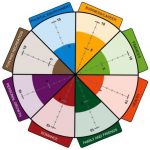The most socially awkward thing I’ve ever done. So awkward I’m not going to * anything.
Have a baby in 2020.
But first, please enjoy the preceding few weeks’ hilarity in my meme and photo folder.
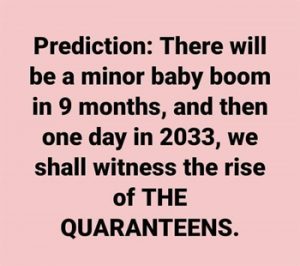
It was really awkward. Not least because of how it happened. One-time-only bad decision making, if you know what I mean, after a few glasses of Irish-cream-what-what from Aldi. I mean, can we be more classy? I’m thoroughly embarrassed as I type this and remember myself saying something like: “it’s the end of the world, who cares anyway?” (April ’20). In any case, one fine day sitting at the computer, the nausea hit me from my toes up. My first thought was, no. Just no. No way. And then himself got sent straight to the pharmacy.
 Back to the awkwardness. For a while, it just looked like the Covid Stone. Then it started looking like a real baby. I was stuck at home, as we all were. Going literally nowhere except to hospital appointments by myself. Time went on and it was just too late to say anything on all the work video calls. I mean, what do you do? Stand up and show off your belly in an ‘accidental’ side shot? Yawn and stretch? Or do you interrupt proceedings with an “excuse me I have some news?” While debating these various different and equally awkward scenarios, so much time passed that it was nearly time to have the actual baby. And then he arrived early. So then the message had to very quickly turn into “hey, I’m off here now for a bit of personal time, but not for too long. No, I don’t have Covid. BRB”-type messages. AFK for a few days.
Back to the awkwardness. For a while, it just looked like the Covid Stone. Then it started looking like a real baby. I was stuck at home, as we all were. Going literally nowhere except to hospital appointments by myself. Time went on and it was just too late to say anything on all the work video calls. I mean, what do you do? Stand up and show off your belly in an ‘accidental’ side shot? Yawn and stretch? Or do you interrupt proceedings with an “excuse me I have some news?” While debating these various different and equally awkward scenarios, so much time passed that it was nearly time to have the actual baby. And then he arrived early. So then the message had to very quickly turn into “hey, I’m off here now for a bit of personal time, but not for too long. No, I don’t have Covid. BRB”-type messages. AFK for a few days.
I had my baby on the 29 November, by section, in CUMH. It was a Sunday night – change of shift time. It was really scary and very unpleasant, with Graeme (my husband) waiting outside in the car park for hours and nobody knowing what was going on. I was admitted to the Emergency and was in for about five hours, in labour, on a narrow bed, not able to reach my phone. By the time I got somebody to pass it to me, I was pretty much being dressed for theatre. We thought I’d go in, be calmed down, and sent away again. Not that simple. Graeme was allowed in basically as they were cutting me open – after they had to repeat the spinal block that didn’t work the first time. Just a really unpleasant evening. He had to leave when they wheeled me out of recovery. He hadn’t been able to attend a single doctor’s appointment with me.
Ruairí came out shouting the odds though and was pretty okay. This was the biggest relief for me at that moment. We had a difficult pregnancy, him and I. Besides it being incredibly awkward, I was diagnosed with gestational diabetes. From start to end, the ball was dropped by the doctors and midwives involved in that regard. If not for our GP and the village pharmacy, I don’t know if we would have come out okay. That, and all the delicious healthy snacks Graeme made. Endless snacking. Snacking till the food is up your throat with the nausea.
To this day, I’m waiting for the South Infirmary to phone me back to get my sugar readings from about 6 months ago. And yes, assholes, I left multiple messages on your various answering machines. Can you tell I got sick and tired of injecting myself with insulin? I have the biggest respect for anybody who lives with diabetes. I did a needle count one day, rough estimation: I had to prick my finger seven times a day in order to test sugars and inject insulin twice a day. I will be avoiding the follow-up fasting glucose test for a while, possibly until the trauma subsides.
When I went into labour, they gave me medication for high blood pressure, as that was playing up too. They explained at the time, but, honestly, I wasn’t listening to anything or seeing very much. I met so many people there that Graeme remembers; don’t ask me who they are though! That medication did something, and Ruairí’s sugars crashed at 48 hours. He landed up in the neonatal unit with a sugar level of 1.9. This was at 10pm at night.
After I had been told that afternoon that he had a murmur in his heart, I had to tell Graeme in a text message. I couldn’t voice note or call because the other children were listening in. Then I had to message, from the deserted basement passage of CUMH in the middle of the night, while our baby was being revived. He got through that. The murmur disappeared. And then he was jaundiced. So jaundiced he went back into the neonatal unit for a few days and sessions under the lamps. We had been able to take him home for one night only at that point. I had to go back to the emergency for very high blood pressure. Sitting, alone, again, on a tiny bed, my milk came in leaking all over. I pumped. He drank. We got through it. He was allowed home when he was one week old.
I don’t think anything gets more awkward than this experience.
All that trauma with nowhere for it to go, in the middle of all the trauma of our lives every day these days. At times, the awkwardness is really funny. But, at other times, I cry.
When we need the hugs and the chat the most, they’re not there anymore. We need to fix this. Be kind to the people around you. Ask how they’re doing. Make space for people to tell their stories. We’re all going through something, and we need each other. Let’s take turns having a bad day and allowing ourselves and others to have a bad day. We’re nearly there. Let’s not leave anybody behind.
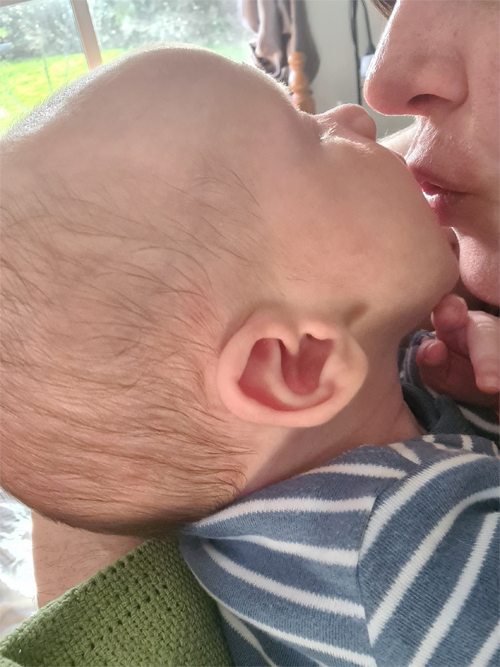
As my niece says, he is our tinnnnyyyyy piece of cheese.
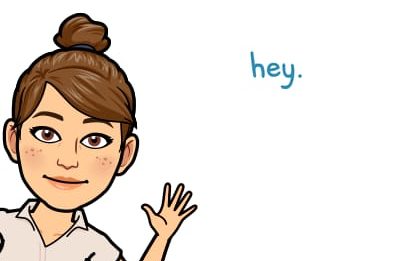

 Sub-categories:
Sub-categories:
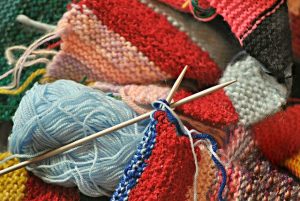 In another first for us in 2021, we will be holding a Stitch ‘n’ Bitch on Thursday, 18 February, at 7.30 pm, in one of the rooms of Xanadu Online Theatre. For those who haven’t heard the term before, a Stitch ‘n’ Bitch is when people get together to work on their various projects while having a natter and a bit of craic at the same time.
In another first for us in 2021, we will be holding a Stitch ‘n’ Bitch on Thursday, 18 February, at 7.30 pm, in one of the rooms of Xanadu Online Theatre. For those who haven’t heard the term before, a Stitch ‘n’ Bitch is when people get together to work on their various projects while having a natter and a bit of craic at the same time.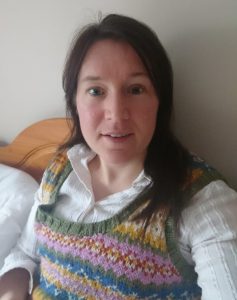 About our host: Aoife Flood’s knitting journey began on a trip to New Zealand in 2007, when she came across a book of designer knitting patterns while browsing in a shop. She decided that, if she wanted to have these designer clothes, the best way was to knit them herself. So that was it; she got the bug and has been hooked ever since. Aoife will sharing some of her wonderful work with us in a gallery exhibition in the coming weeks. She is wearing one of her own pieces in the photo.
About our host: Aoife Flood’s knitting journey began on a trip to New Zealand in 2007, when she came across a book of designer knitting patterns while browsing in a shop. She decided that, if she wanted to have these designer clothes, the best way was to knit them herself. So that was it; she got the bug and has been hooked ever since. Aoife will sharing some of her wonderful work with us in a gallery exhibition in the coming weeks. She is wearing one of her own pieces in the photo.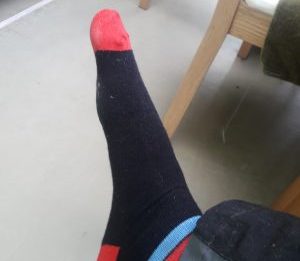
 Then a series of bags and containers that have to be assembled very carefully in a specific order, Russian doll-like, when you do the actual test. Weird, I thought I’d already started, and then I notice in the book of instructions – that was in the bag – that I shouldn’t open the bag without washing my hands for 20 seconds, and that I should also clean all the surfaces before I get them out, but I haven’t finished the box; but then I shouldn’t have started, because I’ve got to clean everything first. How the fuck am I meant to know that, as, to read it, I’ve had to open the bag? So now I clean everything because it’s wrong. Could have Covid on it. So I go back and I wipe everything and I think I’d better finish the box, or maybe not? Maybe I should unfold and start all over again, in case I’ve missed something in the instructions? When I do read the instructions, I say “thank goodness I didn’t just see the big cotton bug and stick it up my nose and throat,” and then it tells me to do that anyway, but it must be an hour before the collection at our priority letter box, and we mustn’t touch anything with the cotton bud apart from two and half centimeters up my nose and the back of my throat. By this time I’m feeling so much better: I mean I’ve made the box, laid everything out and I’ve cleaned everything three time,s and I’ve learnt a lot about my area and where our priority post boxes aren’t, probably super spreading all the while. So then I find the link to the you tube video – which is handily in the booklet – so much easier to click on a link in paper instruction booklet – or rather it isn’t – but I manage to type it and link to Ali, the nice man who explains everything handily and simpl,y including which things might not be in the kit they’ve sent me. He says he know it’s a bit fiddly and frustrating but not too much he hopes, as I guess I could be feverish and confused at this point. He then reminds me to wash my hands for twenty seconds exactly. I nearly scald myself with the tap, but guess that’ll kill Covid as well. He also shows me how to stick a cotton bud in my throat and up my nose without touching anything else with the fabric. This all needs to go into the tube with liquid, and I must snap off the handle and close the tube without contaminating the contents. At this point I have a headache and have discovered how to stimulate a gagging reflex from the back of my throat without touching anything else. But have I rubbed my tonsils, and who knew they weren’t the dangly bits, for fecks sake? Also, this is where it goes into a second tube- that I don’t have – and into two bags: one labelled bio hazard and the other with a pinch seal. All in a specific order, which is then all packaged in my handcrafted origami box, which has a special seal sticker that is in the bag in the box. Bollocks; still, it’s all part of a test, so I backtrack and seal the box thankfully with all the contents. I’m now running late for the priority collection, so in my feverish and somewhat confused state I, masked to the eyeball, stagger to the priority post box, narrowly evading non-socially-distancing pedestrians who ring the post box.
Then a series of bags and containers that have to be assembled very carefully in a specific order, Russian doll-like, when you do the actual test. Weird, I thought I’d already started, and then I notice in the book of instructions – that was in the bag – that I shouldn’t open the bag without washing my hands for 20 seconds, and that I should also clean all the surfaces before I get them out, but I haven’t finished the box; but then I shouldn’t have started, because I’ve got to clean everything first. How the fuck am I meant to know that, as, to read it, I’ve had to open the bag? So now I clean everything because it’s wrong. Could have Covid on it. So I go back and I wipe everything and I think I’d better finish the box, or maybe not? Maybe I should unfold and start all over again, in case I’ve missed something in the instructions? When I do read the instructions, I say “thank goodness I didn’t just see the big cotton bug and stick it up my nose and throat,” and then it tells me to do that anyway, but it must be an hour before the collection at our priority letter box, and we mustn’t touch anything with the cotton bud apart from two and half centimeters up my nose and the back of my throat. By this time I’m feeling so much better: I mean I’ve made the box, laid everything out and I’ve cleaned everything three time,s and I’ve learnt a lot about my area and where our priority post boxes aren’t, probably super spreading all the while. So then I find the link to the you tube video – which is handily in the booklet – so much easier to click on a link in paper instruction booklet – or rather it isn’t – but I manage to type it and link to Ali, the nice man who explains everything handily and simpl,y including which things might not be in the kit they’ve sent me. He says he know it’s a bit fiddly and frustrating but not too much he hopes, as I guess I could be feverish and confused at this point. He then reminds me to wash my hands for twenty seconds exactly. I nearly scald myself with the tap, but guess that’ll kill Covid as well. He also shows me how to stick a cotton bud in my throat and up my nose without touching anything else with the fabric. This all needs to go into the tube with liquid, and I must snap off the handle and close the tube without contaminating the contents. At this point I have a headache and have discovered how to stimulate a gagging reflex from the back of my throat without touching anything else. But have I rubbed my tonsils, and who knew they weren’t the dangly bits, for fecks sake? Also, this is where it goes into a second tube- that I don’t have – and into two bags: one labelled bio hazard and the other with a pinch seal. All in a specific order, which is then all packaged in my handcrafted origami box, which has a special seal sticker that is in the bag in the box. Bollocks; still, it’s all part of a test, so I backtrack and seal the box thankfully with all the contents. I’m now running late for the priority collection, so in my feverish and somewhat confused state I, masked to the eyeball, stagger to the priority post box, narrowly evading non-socially-distancing pedestrians who ring the post box.
 Welcome to Episode One of The Prison Podcasts. We asked Jackson to tell us a little bit about his experience working in prisons, and it turns out he has an awful lot of stories! Welcome to prison!
Welcome to Episode One of The Prison Podcasts. We asked Jackson to tell us a little bit about his experience working in prisons, and it turns out he has an awful lot of stories! Welcome to prison!
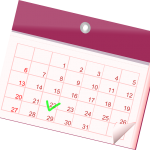 Merry New Year to all of you! I went AWOL for a good reason there – to be revealed in the next column as The Most Socially Awkward Thing I Did in 2020 and Ever.* In any case, here we are. Locked down. Again. The third time over. Well, it’s more like the second time, as the time before this didn’t really count. Or did it? Time is a bit hazy at the moment. I find my mind reverts back to our Southern Hemisphere, South African calendar in a Clockwork Orange-type blip from time to time. Is it the start of the school year? Is it the end? What’s happening? It feels like July, but it’s not. Will summer ever come back? If I start posting pictures of crossed out I I I Is send help!
Merry New Year to all of you! I went AWOL for a good reason there – to be revealed in the next column as The Most Socially Awkward Thing I Did in 2020 and Ever.* In any case, here we are. Locked down. Again. The third time over. Well, it’s more like the second time, as the time before this didn’t really count. Or did it? Time is a bit hazy at the moment. I find my mind reverts back to our Southern Hemisphere, South African calendar in a Clockwork Orange-type blip from time to time. Is it the start of the school year? Is it the end? What’s happening? It feels like July, but it’s not. Will summer ever come back? If I start posting pictures of crossed out I I I Is send help! Other coping slash distraction mechanisms include binge watching series. Schitt’s Creek has opened up a world of meme-age.***** We’re onto Brooklyn 99 now. It’s making me regret not going into the police service and becoming a detective (that is one of my lesser-known regrets – I think I would have made a very good detective. I also have a queue of schmaltzy 90s and 2000s romantic comedies to get through; Sweet Home Alabama ticked off that list. Mental chewing gum is where it is at.
Other coping slash distraction mechanisms include binge watching series. Schitt’s Creek has opened up a world of meme-age.***** We’re onto Brooklyn 99 now. It’s making me regret not going into the police service and becoming a detective (that is one of my lesser-known regrets – I think I would have made a very good detective. I also have a queue of schmaltzy 90s and 2000s romantic comedies to get through; Sweet Home Alabama ticked off that list. Mental chewing gum is where it is at. In any case, fuck Brexit. Really. I don’t say much about it publicly, but I am sad it actually happened. I’m sad for all that could have been and now never will be. I’m sad for people who believe they’re so much better than everybody else that they put walls up, slam doors shut, and retreat. Small people with small minds. Nationalism turned disease. There, I said it. Ugh. In protest, I check out my items on Amazon one by one,******* while I watch my romcoms, eating alcoholic milkshakes and dreaming of UBI and communal gardens.
In any case, fuck Brexit. Really. I don’t say much about it publicly, but I am sad it actually happened. I’m sad for all that could have been and now never will be. I’m sad for people who believe they’re so much better than everybody else that they put walls up, slam doors shut, and retreat. Small people with small minds. Nationalism turned disease. There, I said it. Ugh. In protest, I check out my items on Amazon one by one,******* while I watch my romcoms, eating alcoholic milkshakes and dreaming of UBI and communal gardens.



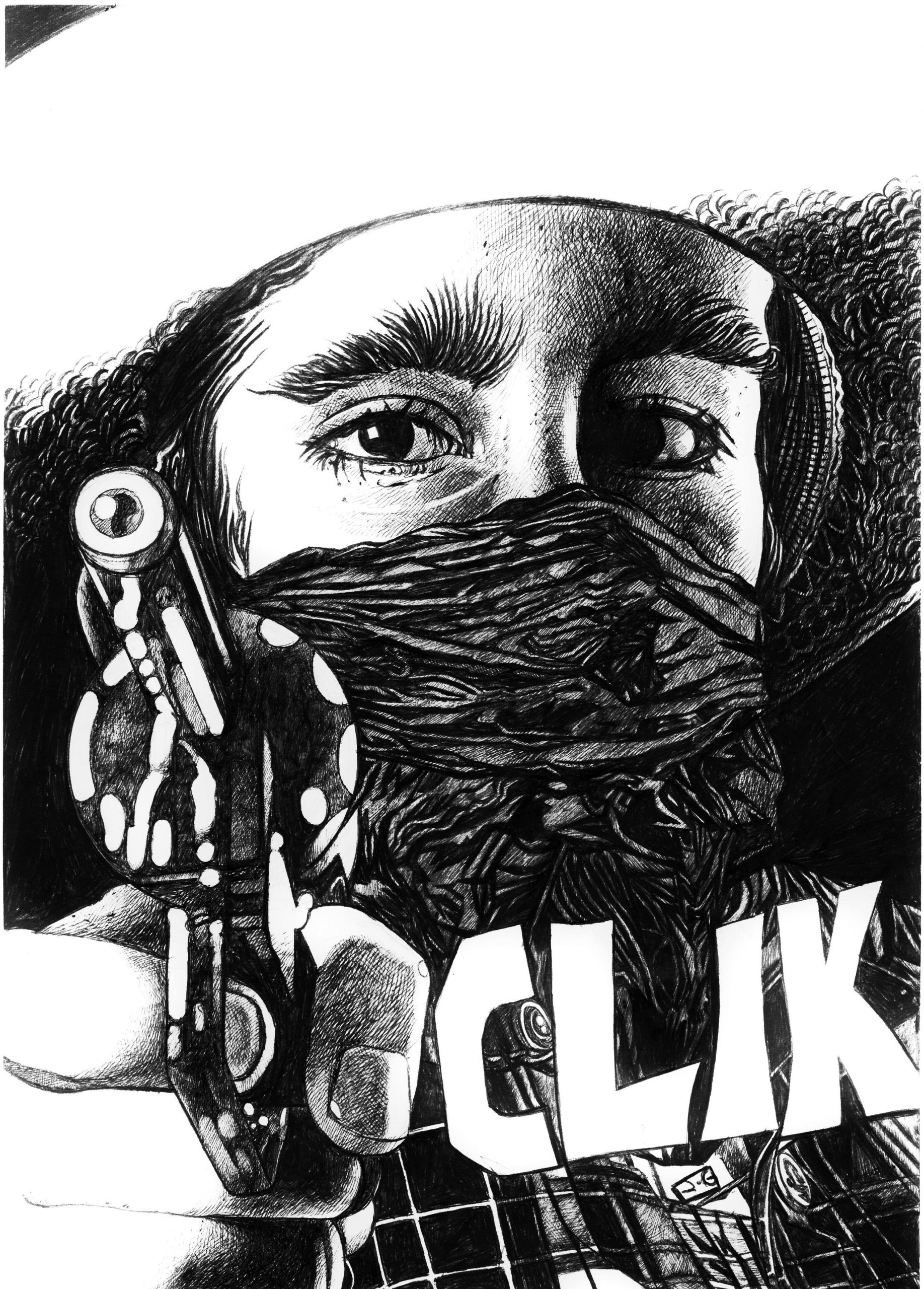

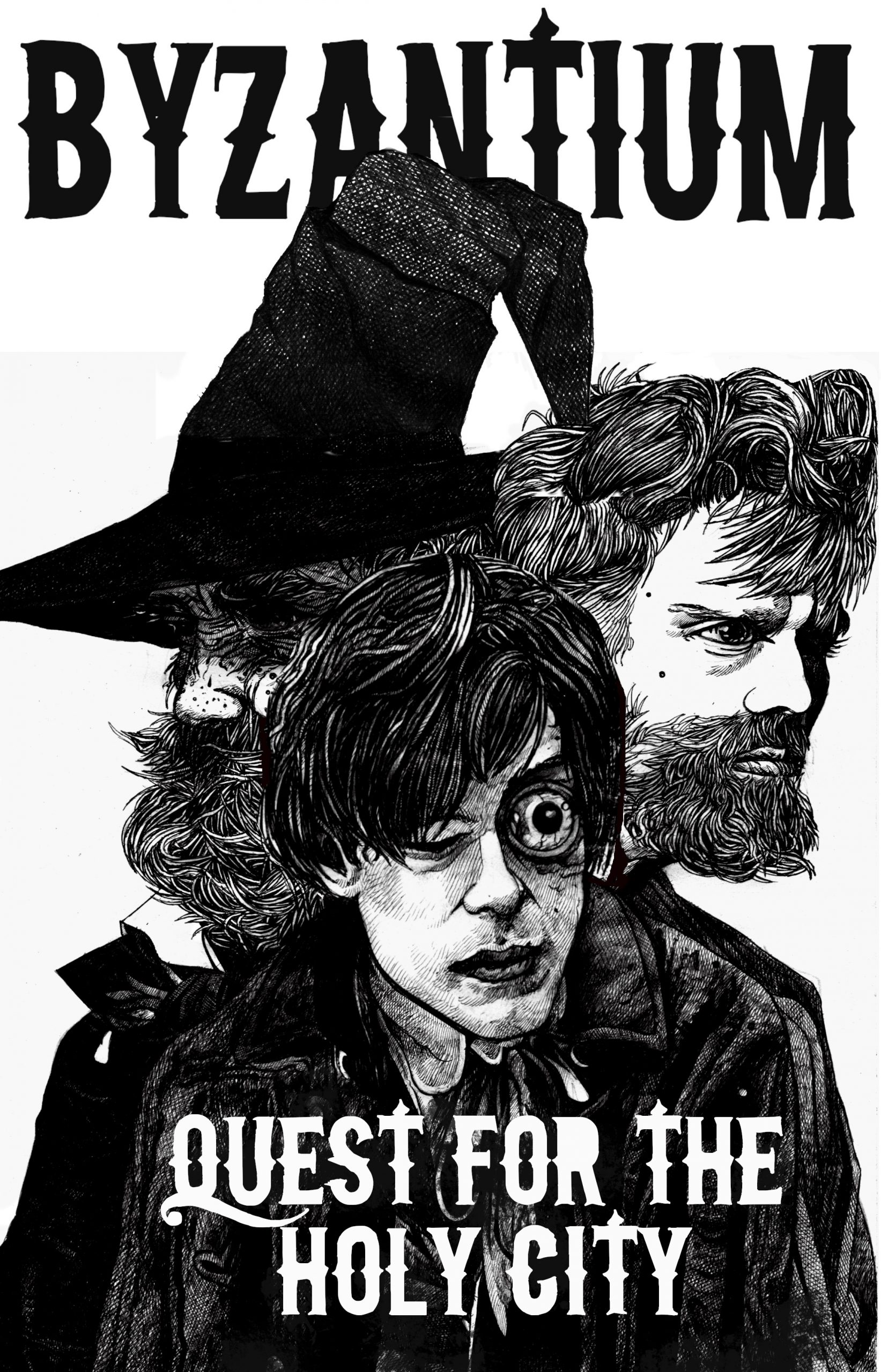
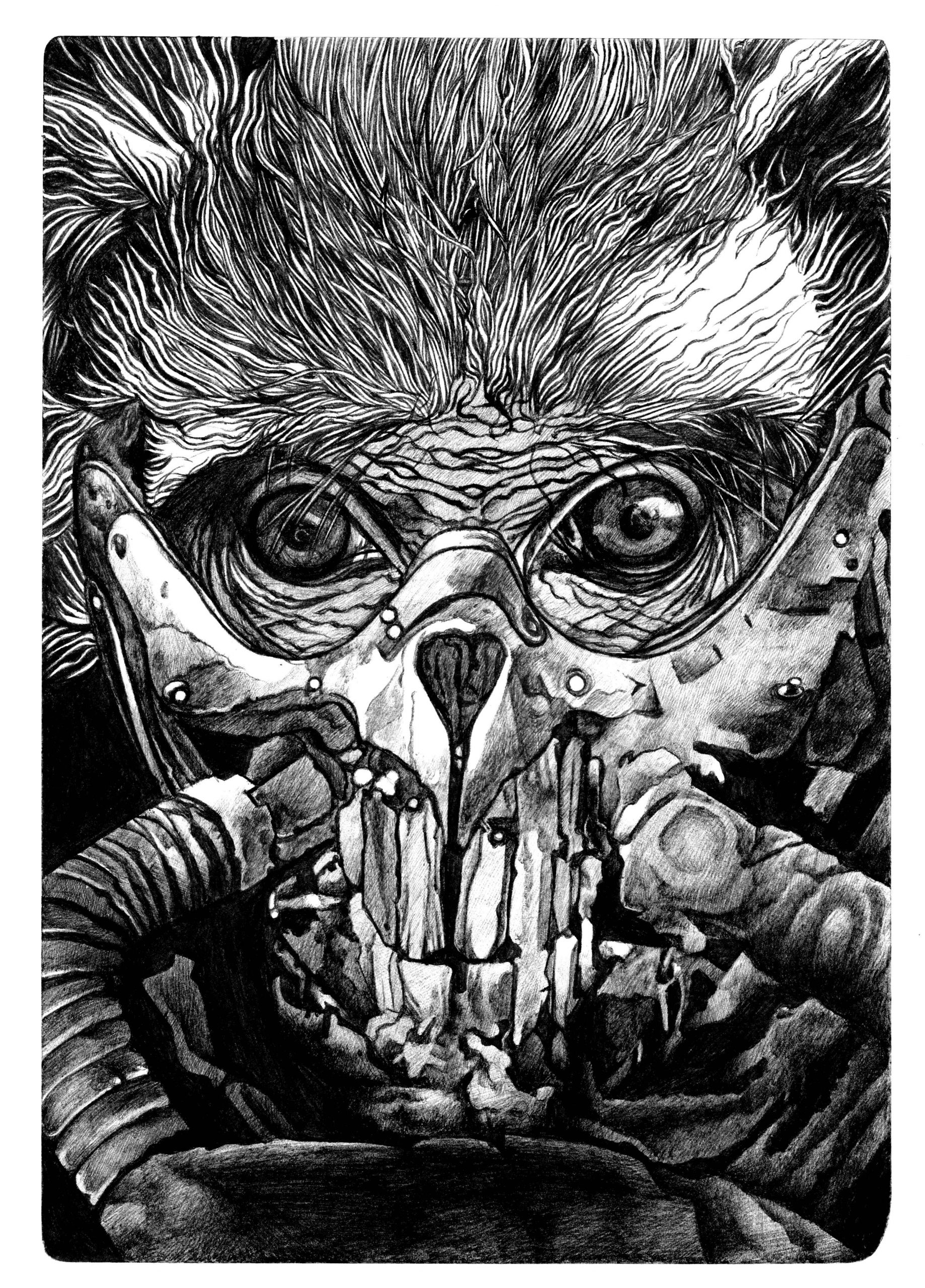




 Reading back, I realise I might have missed out a small, but rather vital, piece of information for you. That is, when you’re setting your focus for the year or quarter or month, to pick out two to three things to focus on. So, if we look at our categories for the year – and we’ve scored them in light of what our level 10 life looks like – in order to start achieving balance, we’d likely pick up the two to three lowest scoring categories and assign them highest priority. On my Wheel of Life, my three lowest scoring categories are: Health, Personal Development, and Fun and Recreation. I decided to concentrate on these for 2020. When I set my goals, I make the goals set in these categories a priority. Other goals come second to these.
Reading back, I realise I might have missed out a small, but rather vital, piece of information for you. That is, when you’re setting your focus for the year or quarter or month, to pick out two to three things to focus on. So, if we look at our categories for the year – and we’ve scored them in light of what our level 10 life looks like – in order to start achieving balance, we’d likely pick up the two to three lowest scoring categories and assign them highest priority. On my Wheel of Life, my three lowest scoring categories are: Health, Personal Development, and Fun and Recreation. I decided to concentrate on these for 2020. When I set my goals, I make the goals set in these categories a priority. Other goals come second to these. Take recreation or hobbies in my case. At the beginning of this year, 2020, the year of all that is Corona, I decided to brush up on my piano playing skills. Again. I thought I’d be able to sneak an hour a couple of times a week while the kids were at school to do this. And then we all laughed together. About halfway into lockdown, I realised that instead of carrying this over as a ‘priority’ task that I was never going to get to, I could shift focus and make sure that I spent at least half an hour to an hour, before I went to sleep, reading novels. This helps me to wind down and shift focus onto something that is not work or family related. I love reading candyfloss time-crime dramas or thrillers. Honestly, it’s as much me-time as piano was ever going to be. I’m not about to be sitting at the Heuston Station piano enthralling all who come and go with my talents, believe you me. It was purely for me to do something different. Reading has the same effect. It is okay to change that specific action of play piano for three hours a week to read for half an hour before bed every night.
Take recreation or hobbies in my case. At the beginning of this year, 2020, the year of all that is Corona, I decided to brush up on my piano playing skills. Again. I thought I’d be able to sneak an hour a couple of times a week while the kids were at school to do this. And then we all laughed together. About halfway into lockdown, I realised that instead of carrying this over as a ‘priority’ task that I was never going to get to, I could shift focus and make sure that I spent at least half an hour to an hour, before I went to sleep, reading novels. This helps me to wind down and shift focus onto something that is not work or family related. I love reading candyfloss time-crime dramas or thrillers. Honestly, it’s as much me-time as piano was ever going to be. I’m not about to be sitting at the Heuston Station piano enthralling all who come and go with my talents, believe you me. It was purely for me to do something different. Reading has the same effect. It is okay to change that specific action of play piano for three hours a week to read for half an hour before bed every night.
 “At the very end of each month, set up a new Monthly Log. Once that’s done, review the pages of the month gone by. Chances are, you didn’t get around to completing all your Tasks. That’s fine! What’s important is figuring out which incomplete Tasks are worth your limited time and energy moving forward. Strike out those that aren’t, and migrate the ones that are.”
“At the very end of each month, set up a new Monthly Log. Once that’s done, review the pages of the month gone by. Chances are, you didn’t get around to completing all your Tasks. That’s fine! What’s important is figuring out which incomplete Tasks are worth your limited time and energy moving forward. Strike out those that aren’t, and migrate the ones that are.”
